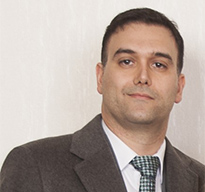Analytical Models for Thermal Recovery and Their Assumptions and Limitations (Forecasting and Prediction)
Disciplines: Reservoir
Course Description
This 1-day course is an introduction to all analytical models assumptions and mathematical principles and their limitations and also discusses. In this course there will be examples using Excel spreadsheets. In this course solvent applications are not covered, but there is 10% of the course on CHOPS.
Topics:
- Thermal Operation: The course starts with short definition of SAGD, CSS and Steam-flooding and how different stage of it will be operated.
- Heat Transfer: Heat-transfer mechanisms are pivotal to the thermal process. In this section different temperature models and their consideration with respect to conduction and convection are discussed:
- Marx-Langenheim
- Butler Temperature Model
- Sharma Gates Convection Model
- Irani and Ghannadi Convection Model
- Butler Production Model: The derivation of oil production using Butler is discussed. Finally, assumptions in “Original Butler model”, TANDRAIN and LINDRAIN models will be discussed and evaluated:
- Butler Plateau Model (i.e., “Original Butler model”, TANDRAIN and LINDRAIN)
- Butler Ramp-up Model
- Discussion on Steam Interface Velocity in “Original Butler model”, TANDRAIN and LINDRAIN models, and its comparison to field data.
- m exponent factor discussion
- CHOPS Production Model
- Skin-Damage Modified Model
- CSS Production Model:
- Boberg and Lantz Model,
- Tamim and Farouq Ali Model
- Irani Model
- SAGD-SOR Discussion: Heat conservation concept and the basis of different SOR analytical models are presented:
- Reis SOR Model
- Edmunds and Peterson (2007)
- Miura and Wang (2012) Model
Learning Objectives:
At the end of this course, participants will be able to:
- Understanding heat transfer in SAGD operation.
- Understanding limitations of analytical models.
- Assumptions made in analytical models.
- Optimizations made in forecasting models.
Learning Level
Introductory to Intermediate
Course Length
1 Day
Why Attend
Most thermal operators are highly dependent on analytical models for their forecasting on both oil production and SOR predictions. This course briefly discusses limitations and assumptions made on different models and provides a good understanding on different models and how to modify these models.
Who Attends
Reservoir and Production Engineers that are involved in forecasting and evaluation of SAGD projects. This is a fundamental course for Reservoir Engineers new to Thermal Operation.
Special Requirements
Attendees should bring a laptop with Excel installed
CEUs
0.8 CEUs (Continuing Education Units) are awarded for this 1-day course.
Cancellation Policy
All cancellations must be received no later than 14 days prior to the course start date. Cancellations made after the 14-day window will not be refunded. Refunds will not be given due to no show situations.
Training sessions attached to SPE conferences and workshops follow the cancellation policies stated on the event information page. Please check that page for specific cancellation information.
SPE reserves the right to cancel or re-schedule courses at will. Notification of changes will be made as quickly as possible; please keep this in mind when arranging travel, as SPE is not responsible for any fees charged for cancelling or changing travel arrangements.
We reserve the right to substitute course instructors as necessary.
Instructor

Mazda Irani is acting as a CTO of Ashaw Energy. He is currently engaged in the designing and optimization of Steam Assisted Gravity Drainage (SAGD) and proper near wellbore modeling for the SAGD wells. One of his main tasks is to help and develop a software that can help operators run their SAGD wells at optimum subcool, manage the hot spots, and modify their FCD design in heterogeneous reservoirs. He published a trilogy paper named “On Subcool Control in Steam-Assisted-Gravity-Drainage Producers."
Dr. Irani was previously employed in technical and supervisory roles with Cenovus Energy, Suncor Energy, RPS Energy, and C-FER Technologies. He has published and presented more than 40 technical papers on different aspects of SAGD operation. Dr. Irani holds a PhD in petroleum engineering (U of C 2017) and geomechanics (U of A 2012) and three Masters degrees in petroleum engineering, geotechnical engineering, and structural engineering.
Other courses by this instructor
Mazda Irani
This 1-day course is an introduction to design and optimization of Flow-Control-Devices (FCDs) and to thermodynamics and pressure-volume-temperature (PVT) in horizontal wells in Thermal Recovery Operations for both SAGD and SA-SAGD. The interaction bet...
(Read More)Disciplines: Reservoir
Mazda Irani
This 1-day course is an introduction to analysis and design of the geothermal reservoir and wellbores. The following topics will be covered:
Analysis of Geothermal Reservoir:
- Introduction of geothermal reservoir
- Conduction and convection in the ge...
Disciplines: Reservoir
Mazda Irani
This 1-day course is an introduction to design and optimization of Inflow-Control-Devices (ICDs) in horizontal wells in conventional reservoirs. The gas-breakthrough and water-cresting/coning is the main reason of failures during such operations. The f...
(Read More)Disciplines: Production and Operations
Mazda Irani
This 1-day course is an introduction to thermodynamics and pressure-volume-temperature (PVT) and tuning parameters to fit laboratory data. Different analytical models for oil rate predictions such as Butler-Mokrys (1989) and Dunn-Nenniger-Rajan (1989) ...
(Read More)Disciplines: Reservoir
Mazda Irani
This one-day course is an introduction to gas-liquid flow patterns in horizontal pipes for complex case of steam at saturated condition at injector; gas-lifting at producers and steam hammer envelopes are discussed. Different two-...
(Read More)Disciplines: Completions | Drilling and Completions
